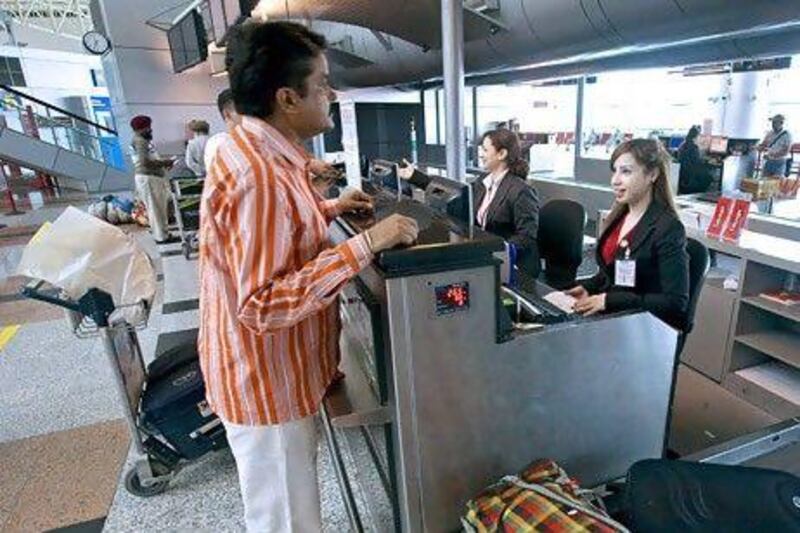India is planning to negotiate with Dubai and Abu Dhabi to open up rights for more flights into the UAE.
India's civil aviation ministry said it would hold fresh bilateral negotiations to "explore enhancing additional traffic rights" with destinations where "existing traffic rights have almost got exhausted". Other destinations it is targeting include Singapore, Thailand, Saudi Arabia, Oman, Iraq and Afghanistan.
This follows criticism that erupted last year surrounding a report by government auditors that claimed that the ministry had allowed Arabian Gulf airlines additional traffic rights to the detriment of Air India as they gained market share.
"The growth of the UAE airlines is part of the reason why India wants to revisit the slot issue as well as raise additional capacity between the countries to allow Indian airlines a better chance of snaring market share," said Saj Ahmad, the chief analyst at StrategicAero Research.
"There is no guarantee, however, that new traffic rights would result in any net gain for Indian airlines."
Indian airlines have been suffering under high debts and taxes.
"The other issue of course is just how additional access would benefit those Indian airlines that have been cutting capacity to shore up falling yields," said Mr Ahmad. "Simply deploying more flights erodes margins - margins that many Indian carriers are struggling to attain, let alone maintain."
The Sharjah-based carrier Air Arabia has been lobbying for more traffic rights in India.
"We wait for the next government-to-government discussion in which we would like to get some more seats into India and if we are granted some more seats by the Indian authorities, we will expand," Adel Ali, the chief executive of Air Arabia said, speaking at a conference in Mumbai two weeks ago.
A report by the National Council of Applied Economic Research undertaken for Emirates Airline, issued in September, highlighted that the Dubai carrier directly contributed Dh1 billion (US$272.2 million) to the Indian aviation economy in the financial year of 2010-2011 and supports more than 72,000 jobs in the country.
"Notwithstanding the impressive numbers and future projections relating to the prospects for Indian civil aviation, there are important reforms that are needed to realise this potential," the report stated. "A lot of this state of affairs has to do with the regulatory bottlenecks that exist in the Indian aviation sector," the report added.
These bottlenecks include bilateral air-service agreements between India and various countries, according to the report.
"The regulations constrain not only the expansion of Indian carriers but also the expansion of the sector as a whole that can also help economic growth."
But some still consider foreign airlines a threat.
"The negative is that the ministry wishes to resume negotiations for more rights with countries surrounding the Indian subcontinent," the former executive director of Air India, Jitender Bhargava, told the Indian newspaper Business Standard.
"These carriers already have a strong stranglehold on the Indian market much to the detriment of Indian carriers, hence any more entitlement will harm economic viability still more."
The beneficiaries of new capacity will be customers, said Mr Ahmad.
"More choice should translate to better fares and pricing. But for the long term, Indian airport infrastructure growth as well as structural overhaul of loss-making Indian airlines is a must if they expect to compete more effectively with their GCC rivals."





